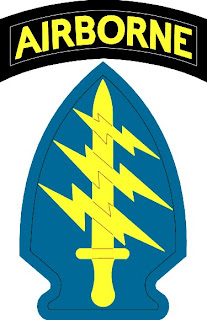Shia Pets
After watching Tim Russert's recent interview (8/26/06) of Thomas Ricks, the Washington Post writer and author of the recent best-seller, Fiasco, I was left unsettled. Thinking about the unfettered spread of Shia dominance in the Mid East region, the unlikely image of the Chia pet came to mind.
For those who don't remember, it resides somewhere in pop consciousness among lava lamps, Ginzu knives (bless you John Belushi) and mood rings. They were terracotta pigs and rams which you'd seed with chia seeds, and they'd grow these fantastic afros of green. You needed to keep it clipped, lest it grow into a kudzu pet, but that was it's beauty--just add a little water, and you couldn't hold it back.
If you listen to Ricks, you realize we've now got a Shia pet problem in the name of runaway Islamic fantacism on the part of subsidized Shiite militias throughout the Mid East region. Ricks' comments were cogent, reasoned and realistic, and I wish to comment on a few of his points.
He was favorable to the U.S. fighting personnel in Iraq and it's easy to agree that the maneuver forces are heroic and dedicated, and my personal dedication is to these personnel.
But he stated that the de facto mission of our military in Iraq has morphed into that of preventing civil war. This seems obvious, but how does that mission addresss America's national strategic objectives, and that at a cost of $1.5 billion a week?
As a military man, I am trying to process the action of trying to prevent a civil war, which is neither a policy nor a mission. It is rather, a knee-jerk reaction that addresses the needs of Iraq while ignoring the long-term national objectives of America.
This violates several principles of war, since U.S. forces can never sieze the offensive to successfully complete their mission as the mission itself is elusive and changes with the daily requirements on the ground. This is reactive, and violates all dictums of war.
In trying to formulate some logic here, I will operate on the principle of charity. With a stretch of the imagination, Sunnis can be seen as insurgents, given one accepts the legitimacy of the present Iraqi government. But Sadr's Mahdi 100,000-man militia is not an insurgent force, merely an unofficial arm of Iranian policy within the current Iraqi government, and they are standing by, possibly ready to fight U.S. forces when Sadr judges the time right.
This is the 900- pound gorilla that U.S. policymakers ignore, and which threatens one of the worst case scenarios, according to Ricks. Should they engage, this would leave the U.S. forces a sitting duck between the Iraqi army and the powerful Mahdi militia.
Sadr's fighters are dedicated to increasing Sadr's power and hegemony in the government of the world's newest democracy, Iraq. The problem is, when they kill Sunnis, what do we call them? As Sadr backs the government, "insurgents" is not the correct term. Is it possible the government loyalists are terrorists? Seems this is possible.
Further, when the U.S. military prevents civil war in Iraq, this benefits Iran and Hezbollah, which gain strength from a strong Shia-dominated Iraq. This is evident by the fact that Jordan and Saudi Arabia are funding and providing intelligence to the Sunnis in Iraq in an effort to counterbalance this phenomenon.
Therefore, U.S. efforts to consolodate governmental power in Iraq (=Shia dominance) goes against what has been long-term U.S. policy in the area, which is concern for the stability of Jordan, Saudi Arabia and Israel, the lynchpins of U.S. security in the area.
A strong Shiite-dominated government in Iraq is a threat to the stability of the region. The question is, why does U.S. policy place the strategic interests of Iraqi mullahs over those of our long-term allies in the region?
The formation of a stable Shia-dominated democracy in Iraq may be fine for Iraq, but it will be strategic mistake to equate this to the best long-term interests of the region, or of the U.S.
What does the $1.5 billion a week buy for the American citizen? Iraqi purple thumbs don't buy no U.S. groceries. Before Hezbollah recently attacked Israel and won the quick and ready support and encouragement of Iran, Iraq and Lebanon, the rationality of U.S. efforts in Iraq was murky. But with those alliances now tried, the waters are a lot clearer. Unfortunately, U.S. policy remains as opaque as ever.
For those who don't remember, it resides somewhere in pop consciousness among lava lamps, Ginzu knives (bless you John Belushi) and mood rings. They were terracotta pigs and rams which you'd seed with chia seeds, and they'd grow these fantastic afros of green. You needed to keep it clipped, lest it grow into a kudzu pet, but that was it's beauty--just add a little water, and you couldn't hold it back.
If you listen to Ricks, you realize we've now got a Shia pet problem in the name of runaway Islamic fantacism on the part of subsidized Shiite militias throughout the Mid East region. Ricks' comments were cogent, reasoned and realistic, and I wish to comment on a few of his points.
He was favorable to the U.S. fighting personnel in Iraq and it's easy to agree that the maneuver forces are heroic and dedicated, and my personal dedication is to these personnel.
But he stated that the de facto mission of our military in Iraq has morphed into that of preventing civil war. This seems obvious, but how does that mission addresss America's national strategic objectives, and that at a cost of $1.5 billion a week?
As a military man, I am trying to process the action of trying to prevent a civil war, which is neither a policy nor a mission. It is rather, a knee-jerk reaction that addresses the needs of Iraq while ignoring the long-term national objectives of America.
This violates several principles of war, since U.S. forces can never sieze the offensive to successfully complete their mission as the mission itself is elusive and changes with the daily requirements on the ground. This is reactive, and violates all dictums of war.
In trying to formulate some logic here, I will operate on the principle of charity. With a stretch of the imagination, Sunnis can be seen as insurgents, given one accepts the legitimacy of the present Iraqi government. But Sadr's Mahdi 100,000-man militia is not an insurgent force, merely an unofficial arm of Iranian policy within the current Iraqi government, and they are standing by, possibly ready to fight U.S. forces when Sadr judges the time right.
This is the 900- pound gorilla that U.S. policymakers ignore, and which threatens one of the worst case scenarios, according to Ricks. Should they engage, this would leave the U.S. forces a sitting duck between the Iraqi army and the powerful Mahdi militia.
Sadr's fighters are dedicated to increasing Sadr's power and hegemony in the government of the world's newest democracy, Iraq. The problem is, when they kill Sunnis, what do we call them? As Sadr backs the government, "insurgents" is not the correct term. Is it possible the government loyalists are terrorists? Seems this is possible.
Further, when the U.S. military prevents civil war in Iraq, this benefits Iran and Hezbollah, which gain strength from a strong Shia-dominated Iraq. This is evident by the fact that Jordan and Saudi Arabia are funding and providing intelligence to the Sunnis in Iraq in an effort to counterbalance this phenomenon.
Therefore, U.S. efforts to consolodate governmental power in Iraq (=Shia dominance) goes against what has been long-term U.S. policy in the area, which is concern for the stability of Jordan, Saudi Arabia and Israel, the lynchpins of U.S. security in the area.
A strong Shiite-dominated government in Iraq is a threat to the stability of the region. The question is, why does U.S. policy place the strategic interests of Iraqi mullahs over those of our long-term allies in the region?
The formation of a stable Shia-dominated democracy in Iraq may be fine for Iraq, but it will be strategic mistake to equate this to the best long-term interests of the region, or of the U.S.
What does the $1.5 billion a week buy for the American citizen? Iraqi purple thumbs don't buy no U.S. groceries. Before Hezbollah recently attacked Israel and won the quick and ready support and encouragement of Iran, Iraq and Lebanon, the rationality of U.S. efforts in Iraq was murky. But with those alliances now tried, the waters are a lot clearer. Unfortunately, U.S. policy remains as opaque as ever.











0 Comments:
Post a Comment
<< Home